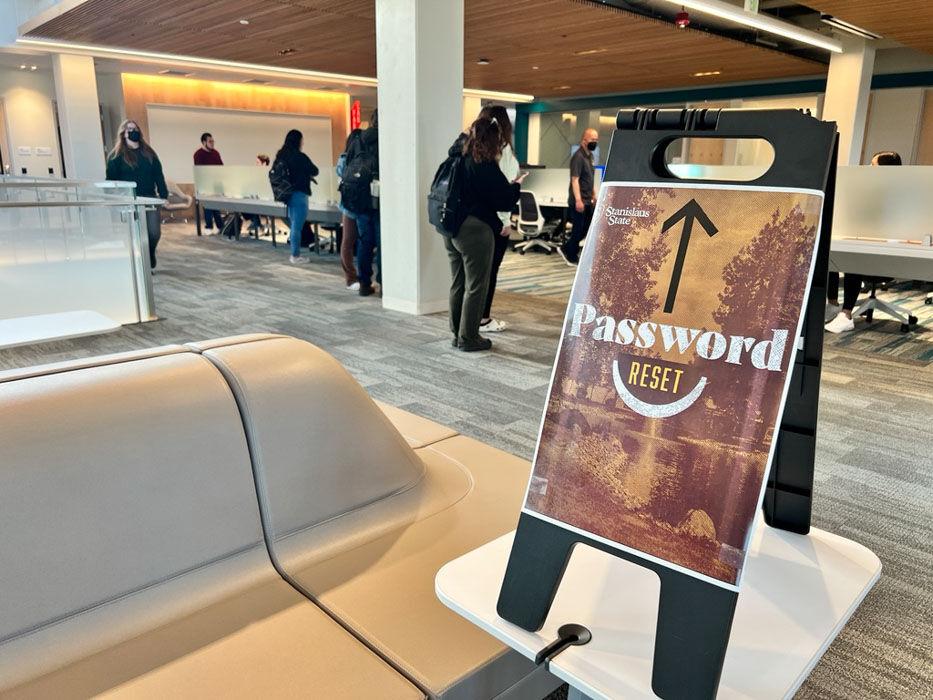Yes, keep it class-y
Does your student ID look like a snapshot from “The People of Wal-Mart”? Do you find yourself ignoring Snapchats because your general style is hung-over chic? Or maybe that’s not you, but somebody you know? While attending class in pajamas might feel like an anarchistic action, slacking off on style is more harmful than students may think.
As much as it sucks, others make judgments about character, almost instantly, based on appearance.
Known as “The Halo Effect,” this phenomenon was first introduced in 1915 by psychologist Edward Thorndike.
Research continues to support the theory today. Professors and peers attribute all kinds of desirable traits to those that are dressed nicely, perceiving them as smarter, more honest and more ambitious than the rest of the style riff-raff.
Well, who cares what people think, right? Wrong. College is more than just a place to refine your beer-pong skills; it’s also usually the first place that professional networking occurs.
Remember the girl who was part of that economics project three semesters ago? She could very well end up being your hiring manager two years from now.
Now is the time to begin making lasting impressions. I’m not saying that students have to be office appropriate on campus, but a little bit of image projection never hurts. Besides, who says you can’t be the life of the party in a blazer?
It’s not just other people’s opinions that matter.
Taking an extra few minutes to pull together an ensemble everyday helps with one’s self-image in the long run.
When you look put-together, you feel put-together.
By making appearance a priority early in the semester, students develop the habits necessary to stay respectable-looking well into the “crunch” of massively long research papers and mid-terms.
While this might be easier said than done, it isn’t rocket science. Follow a few style blogs on tumblr, get a haircut or be an overachiever and learn how to use an iron properly.
Being clean and coordinated is the first and most vital step to projecting an image that inspires confidence and assumes ability.
Once that’s nailed down, developing a personal sense of style is the birthright of every student.
Also, don’t worry about making the occasional blunder; mixing leopard print and stripes won’t be the worst thing that ever happens, but if it does, the important thing is to rock it and mean it.
Trends aren’t as important as being polished and intentional in your appearance. Take ten minutes to get dressed in real clothes. Don’t be a slob.
No, don’t sweat it
It’s often misconstrued that being a college student means looking the part. Elle, from “Legally Blonde,” portrayed that image quite nicely in her transition from teeny-bopper to Harvard’s finest.
Looking the part, however, is not nearly as important as acting the part.
“Getting good grades should be your initial priority,” Katie Staack (senior, Communication Studies) said. “You shouldn’t be judged by what you wear.”
This isn’t high school anymore. This is college.
Classes are tough, homework is constant and stress is usually through the roof.
Although networking is important, impressing peers and professors with attire will not give as much of an edge as a high GPA.
Early morning classes prove to be a constant battle with the alarm clock, and we can all agree that having those extra (in some cases, only) 10 minutes in the morning is better spent on a hearty breakfast than closet blunders and wardrobe malfunctions.
“I already pay to go here,” Jessica Varady, (junior, Criminal Justice) said. “I’m not looking to impress anybody.”
Let your grades speak for themselves.
The best-dressed accounting major won’t get hired for his or her savvy style, but because of their ability to crunch those numbers.
Avoiding the bias, yet speaking from personal experience, “the look” is not as important to those who are student athletes.
Although this article is speaking to the entire student body, it’s important to recognize the viewpoint of student athletes.
If I had the time to get ready and look the part, I would.
The opportunity to “dress to impress” is not presented to student athletes because of the constant practice and “every day, all day” mentality of NCAA sports.
Because of this, however, students should know that hard work and dedication to academia is the core of all current and future recommendation letters from professors or faculty.
In most cases, “dressing to impress” or “casual comfort” will fall into the disorderly perils of one’s priorities.
Whatever you choose is up to you, that’s the beauty of college. Students make their own choices.
For classes, homework and “all nighters,” be comfortable, be your own classy, be you.
If students are getting good grades and actively participating in class, recommendation letters from professors will be based off of knowledge, cooperation and even leadership. Qualities
Professionalism is important, and of course students should be dressed professionally in certain situations — such as presentations, meetings or interviews —, but the day-to-day, class-to-class, importance of dressing to impress should not be a judgmental turning point for a college student.
Categories:
Does classroom attire make a difference?
By Melisa Koessel
•
February 11, 2014
0
Donate to Signal
Your donation will support the student journalists of California State University, Stanislaus. Your contribution will allow us to purchase equipment and cover our annual website hosting costs.
More to Discover







